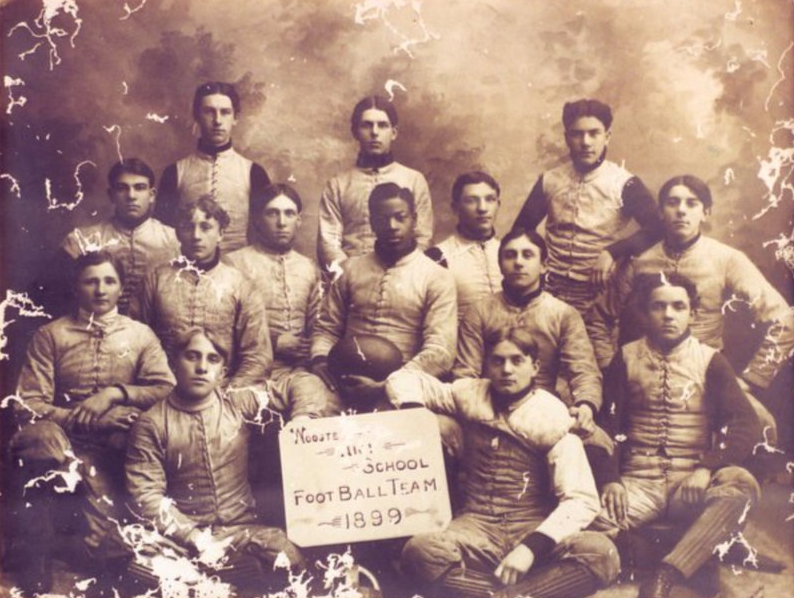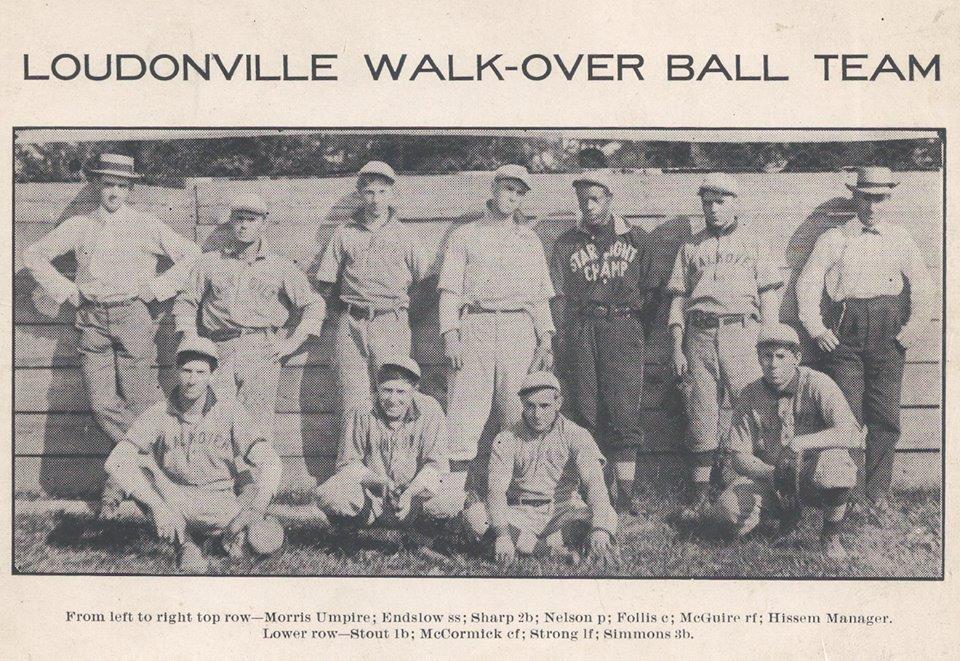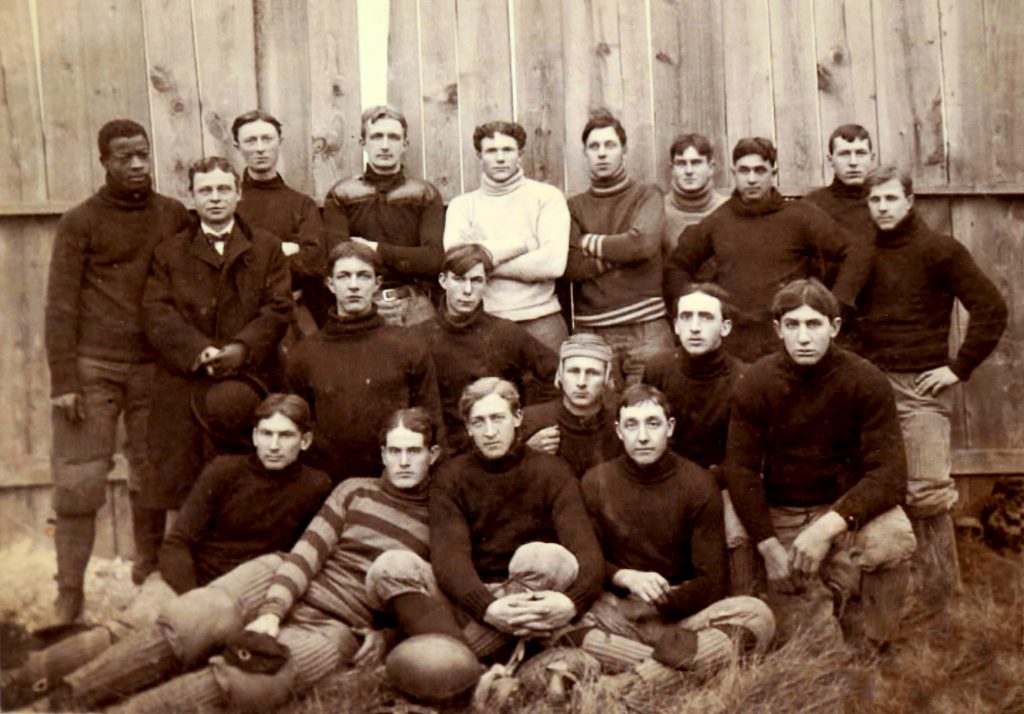Historical Timeline
Three parallel timelines of events that chronicle the molding of Charles
Charles Follis Timeline
Feb. 3, 1879
Charles Follis was born in Cloverdale, VA.
1898
Charles enrolled in Wooster High School.
1899
Charles was the cofounder of Wooster HS football; named captain (undefeated team).
1900
Charles graduated from Wooster HS.
1900
In 1900 he was a brilliant young catcher for the Wooster A.A. town team. This team entered the Ohio Trolley League as the Wooster Giants and became the league champions. Charles Follis was the Giants' star catcher ... their leading slugger ... their most widely known player.
1901
Charles became a star playing for the Wooster Amateur Athletic Association football team - did not play for Wooster College.
1901
In the Spring, Charles enrolled in the College of Wooster.
1901
Played a 2-game series against Shelby Blues (played against Branch Rickey who played for Shelby).
1901
Charles played baseball for Wooster College.
1902
Charles joined the Shelby Athletic Club football team (Shelby Blues).
1902
Played as a "ringer" for Loudonville Walk-Over baseball club.
1902
Played baseball for Wooster College.
1902
Worked for Seltzer and Sons Hardware Store in Shelby, Ohio, with working hours arranged so that he could both practice and play football.
1903
It was reported in a 22-5 victory over the rugged Columbus Panhandles in 1903, that Follis had torn ligaments in his shoulder.
Sept. 16, 1904
Signed a contract with the Shelby Blues -1st black pro.
1904
Celebrated signing with a 83 yard TD; record 8-1-1.
1905
Toledo team captain addressed the crowd and asked them to stop, chanting The N-word at Charles.
1906
Thanksgiving Day game vs Franklin Athletic Club- last football game; career ended due to injuries suffered throughout his career.
1907
Struck by lightning playing for the Cuban Giants in NJ (1 player killed).

1910
His death, as that of Mark Twain, were considered two of the most significant passings of 1910.
1976
Inducted into Wayne County Sports Hall of Fame.
1989
Inducted into the Wooster High School Hall of Fame.
2013
Inducted into the College of Wooster Hall of Fame.
2019
Ohio Historical Marker erected in honor of Charles W. Follis.

Follis Family Timeline
1878
Benjamin Follis came to Wooster worked for Firestone Bank.
1884
James Follis and family migrated to Wooster, Ohio.

1892
2nd Baptist church of Wooster complete. Head Foreman & Trustee - James Henry Follis. Organized financial plan - Benjamin Follis.
1893
Benjamin Follis dies.

1903
True Reformers of Ohio - The Follis family regularly attends meetings to foster change in society with other prominent African Americans.
1910
James Henry Follis dies in his home.
1915
Lucy Follis played music for all the silent movies being shown as well as all major concerts and events in and around Ohio.
1922
Catherine M. Follis dies in her home.
1943
Benjamin Curtis Follis dies in a drowning incident during an Army exercise.

Historical Timeline
1851
Sojourner Truth, a former slave, delivered her “Ain’t I a Woman?” speech during Women’s Rights Convention at the Old Stone Church in Akron, Ohio.
1852
Uncle Toms Cabin published.
1854
Abolitionist Frederick Douglass delivered the 1854 commencement address at Western Reserve College in Hudson, Ohio.
1858
First published play by an African American: The Escape; or, A Leap for Freedom by William Wells Brown.
1859
Abolitionist John Brown led the raid on a Federal Armory at Harpers Ferry, Virginia, to start an armed revolt of enslaved people.
*resided in Akron, Ohio on Copley road from 1844 to 1854
1861-1865
The Civil War.
*5 days after the war U.S. President Abraham Lincoln was assassinated
1863
First African-American president of a college: Bishop Daniel Payne (Wilberforce University).
1863
First college owned and operated by African Americans: Wilberforce University in Ohio.
1864
First African-American woman in the United States to earn an M.D.: Dr. Rebecca Davis Lee Crumpler.
Dec. 6, 1865
Thirteenth Amendment was adopted to end slavery as part of the United States Constitution.
*Aunt Sally Smith, also known as Redoshi, was kidnapped as a child from her hometown of Benin, Africa. - Last known slave in America
1866
First African American to earn a Ph.D.: Father Patrick Francis Healy from University of Leuven, Belgium.
1866
First African-American woman enlistee in the U.S. Army: Cathay Williams.
1866
First African-American woman to serve as a professor: Sarah Jane Woodson Early; Xenia, Ohio's Wilberforce University hired her to teach Latin and English.
1868
First African American elected to the U.S. House of Representatives: John Willis Menard. His opponent contested his election, and opposition to his election prevented him from being seated in Congress.
1868
First elected African-American Lieutenant Governor: Oscar Dunn (Louisiana).
1869
First African-American U.S. diplomat: Ebenezer Don Carlos Bassett, minister to Haiti.
1869
First African-American woman school principal: Fanny Jackson Coppin (Institute for Colored Youth).
1870
First African American elected to the U.S. Senate, and first to serve in the U.S. Congress: Hiram Rhodes Revels (R–MS).
1870
First African American to graduate from Harvard College: Richard Theodore Greener.
1870
First African American to serve in the U.S. House of Representatives: Joseph Rainey (R-SC).
1870
First African American to vote in an election under the 15th Amendment to the United States Constitution, granting voting rights regardless of race: Thomas Mundy Peterson.
1870
Fifteenth Amendment to the Constitution is ratified, giving African Americans the right to vote.
1872
First African-American nominee for Vice President of the United States: Frederick Douglass by the Equal Rights Party.
1873
Panic of 1873 Firms that heavily invested in the Northern Pacific Railroad declared bankruptcy, a financial crisis spread across the United States and Europe, causing a depression lasting from 1873 to 1879.
1873
First African-American Speaker of the Mississippi House of Representatives, and of any state legislature: John R. Lynch.
1874
First African American to preside over the House of Representatives as Speaker pro tempore: Joseph Rainey.
1874
First African-American president of a major college/university: Father Patrick Francis Healy, S.J. of Georgetown College.
1876
First African American to earn a doctorate degree from an American university: Edward Alexander Bouchet (Yale College Ph.D., physics; also first African American to graduate from Yale, 1874).
1877
First African-American graduate of West Point and first African-American commissioned officer in the U.S. military: Henry Ossian Flipper.
1878
First African-American police officer in Boston, Massachusetts: Sergeant Horatio J. Homer.
1879
First African American to graduate from a formal nursing school: Mary Eliza Mahoney, Boston, Massachusetts.
1880
First African American to command a U.S. ship: Captain Michael Healy.
1882
First fully state-supported four-year institution of higher learning for African Americans: Virginia State University.
1883
First African-American Woman to earn a PhD. Nettie Craig-Asberry June 12,1883 earns her doctoral degree in Music from the University of Kansas one month shy of her 18th birthday.
1883
First known African-American woman to graduate from one of the Seven Sisters colleges: Hortense Parker (Mount Holyoke College).
1884
First African American to play professional baseball at the major-league level: Possibly Moses Fleetwood Walker, but see also William Edward White in 1879.
1884
First African-American woman to hold a patent: Judy W. Reed, for an improved dough kneader, Washington, D.C.
1890
First African American to record a best-selling phonograph record: George Washington Johnson, "The Laughing Song" and "The Whistling Coon."
1890
First African-American woman to earn a dental degree in the United States: Ida Rollins, University of Michigan.
1890
Woman and African American to earn a military pension for their own military service: Ann Bradford Stokes.
1891
First African-American police officer in present-day New York City: Wiley Overton, hired by the Brooklyn Police Department prior to 1898 incorporation of the five boroughs into the City of New York.
1892
First African American named to a College Football All-America Team: William H. Lewis, Harvard University.
1895
First African American to earn a doctorate degree (Ph.D.) from Harvard University: W.E.B. Du Bois.
1895
First African-American woman to work for the United States Postal Service: Mary Fields.
1898
First African American appointed to serve as U.S. Army Paymaster: Richard R. Wright.
1899
First African American to achieve world championship in any sport: Major Taylor, for 1-mile track cycling.
1901
First African American invited to dine at the White House: Booker T. Washington.
1902
First African-American boxing champion: Joe Gans, a lightweight.
1902
First African-American professional basketball player: Harry Lew (New England Professional Basketball League).
1903
First African-American woman to found and become president of a bank: Maggie L. Walker, St. Luke Penny Savings Bank (since 1930 the Consolidated Bank & Trust Company), Richmond, Virginia.
1903
First Broadway musical written by African Americans, and the first to star African Americans: In Dahomey.
1904
First African American to participate in the Olympic Games, and first to win a medal: George Poage (two bronze medals).
1904
First African-American professional American football player: Charles Follis.
1908
First African-American heavyweight boxing champion: Jack Johnson.
1908
First African-American Olympic gold medal winner: John Taylor (track and field medley relay team).
1908
First intercollegiate Greek-letter sorority established by African Americans: Alpha Kappa Alpha (ΑΚΑ) at Howard University.
1910
First African-American female to be recorded commercially: Daisy Tapley.
1910
First African-American woman millionaire: Madam C. J. Walker.
1911
First African-American police officer in New York City: Samuel J. Battle, following the 1898 incorporation of the five boroughs into the City of New York, and the hiring of three African-American officers in the Brooklyn Police Department. Battle was also the NYPD's first African-American sergeant (1926), lieutenant (1935), and parole commissioner (1941).
1911
First African-American attorney admitted to the American Bar Association: Butler R. Wilson (June 1911), William Henry Lewis (August 1911), and William R. Morris (October 1911).
1911
First intercollegiate Greek-letter fraternity established by African Americans at a historically black college: Omega Psi Phi (ΩΨΦ), at Howard University.
1914
First African-American military pilot: Eugene Jacques Bullard.
1916
First African American to play in a Rose Bowl game: Fritz Pollard, Brown University.
